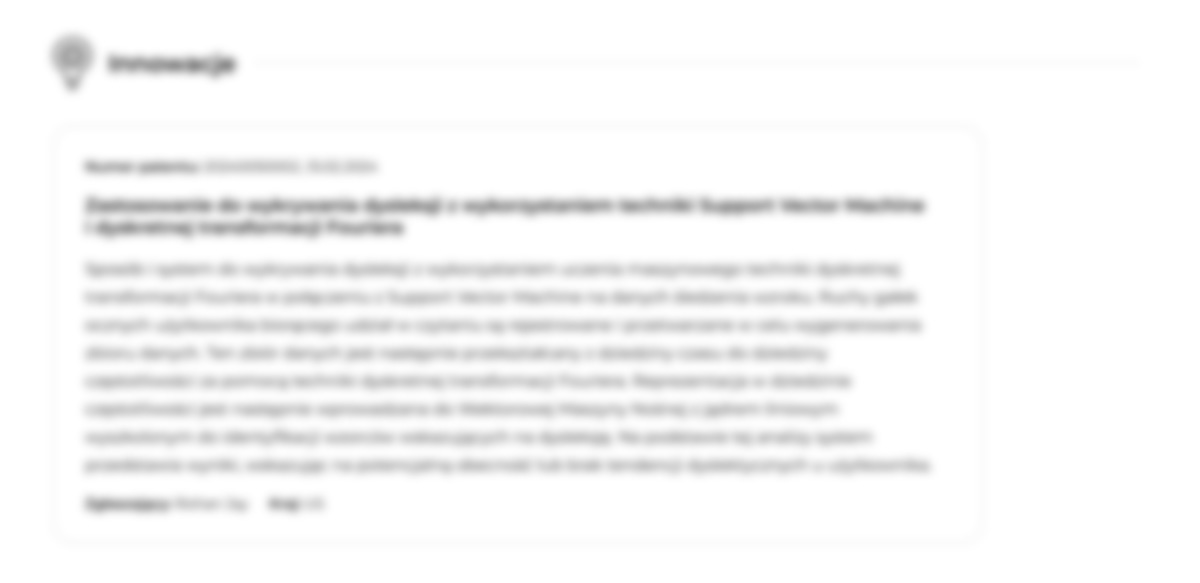Organoid Intelligence

Megatrend
Long-term, major change of a global nature; changing the balance of power, the existing way of operating.
Long-term, major change of a global nature; changing the balance of power, the existing way of operating.
- ALTERNATIVE WORLDS
- AI WORLD
Time perspective
Trends are placed in four time perspectives:
NOW – perspective now;
NEW – short-term perspective (1-5 years);
NEXT – medium-term perspective (5-15 years);
BEYOND – perspective for the long term (15+ years).
Trends are placed in four time perspectives:
NOW – perspective now;
NEW – short-term perspective (1-5 years);
NEXT – medium-term perspective (5-15 years);
BEYOND – perspective for the long term (15+ years).
- Now
- New
- Next
- Beyond
Trend Momentum Index TM
infuture.institute’s proprietary indicator for assessing the relevance of trends. The TMI is calculated dynamically based on a wide range of data, including, among others, regulations introduced, research, patents filed, impact on sustainability goals, investments or the value of individual markets.
infuture.institute’s proprietary indicator for assessing the relevance of trends. The TMI is calculated dynamically based on a wide range of data, including, among others, regulations introduced, research, patents filed, impact on sustainability goals, investments or the value of individual markets.


Definition of a trend
The trend is to use organoids – simplified, miniature versions of organs grown in laboratories from stem cells – to simulate brain and other organ function for computational purposes. The trend is working on technological solutions that combine tissue engineering and synthetic biology to create structures (including bio-digital interfaces) that can process information. Organoid intelligence opens up new possibilities in fields such as neuroscience, artificial intelligence and medicine, but it also raises ethical questions about the cultivation and use of brain organoids, as well as the interaction between biological and digital systems.
Trend Momentum Index TM
Reasons for the trend
- advances in biology and tissue engineering that enable the creation of increasingly complex organoids that mimic the functions of human organs;
- growing needs in the area of disease modelling and drug testing, including the need for better models for biomedical research (cell cultures and animal experiments often do not fully capture the complexity of human tissues and organs),
- the growing trend of personalising treatment in medical care,
- the need to overcome the limitations of current computing systems (brain organoids and other biological computing systems may offer unique approaches to solving problems that are difficult for traditional computers),
- the search for new computational models, including those based on biological structures, needed to address global challenges.
Insights
Check out monthly updated examples of the occurrence of trend Organoid Intelligence in patents, scientific articles and media. Materials are selected using our machine learning algorithms and approved by the infuture.institute team
AI GENERATED
HUMAN CURATED
Consequences of the trend
- new opportunities in fields such as neuroscience and medicine,
- new opportunities in regenerative medicine, including the cultivation of organs for transplantation, which can help overcome the problems of limited donor availability and transplant rejections,
- more precise disease models, which can accelerate the development of drugs and therapies,
- a personalised approach in medicine, which will make treatment more effective,
- new opportunities in the field of artificial intelligence, including the creation of AI systems more akin to natural intelligence,
- The ethical and legal challenges of using organoids created from human tissues and creating bio-digital systems based on them.
Supporting technologies
biotechnology, nanotechnology, genetic engineering, tissue engineering, bioprinting, bio-digital interfaces, artificial intelligence
Industries most sensitive to the trend
neuroscience, neurology, medicine, pharmacy, computer science, new technologies, law

